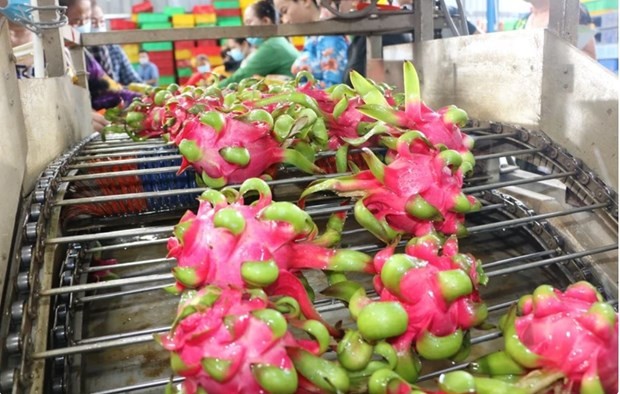
New approach needed to better tap Chinese market: experts
Latest
 |
| Vietnam has been China's fourth most important trade partner and its main supplier of such products as lychee, dragon fruit and cashew nuts. (Photo: VNA) |
The conference, held by Vietnam Sanitary and Phytosanitary Notification Authority and Enquiry Point (SPS Vietnam), provided guidance for businesses to meet sanitary and phytosanitary standards.
To Ngoc Son, Deputy Director of the Asia-Africa Market Department under the Ministry of Industry and Trade, said China is Vietnam's most important trade partner with bilateral trade reaching 175.5 billion USD in 2022, accounting for 24% of Vietnam's total import-export turnover.
This year, China remains an important export market for many Vietnamese agricultural products as it makes up nearly 54% of Vietnam's accumulative fruit and vegetable export value, he went on.
Meanwhile, Vietnam has been China's fourth most important trade partner and its main supplier of such products as lychee, dragon fruit and cashew nuts.
However, Son said Vietnamese exporters have yet to fully tap the market due to the habit of exporting via unofficial channels, prompting the neighbouring country to restrict it and boost exports via official channels, and set sanitary and phytosanitary standards.
Besides, Vietnamese agricultural products are under increasing competition from other countries in the region, he said.
Therefore, he said producers need to ensure product quality, and exporters should shift to official channels, stay updated on the market’s new trends and taste, and enhance regional approach to the big market, the official recommended.
Vietnamese agro-aquatic product exporters were also advised to pay special heed to China’s Decree 248 on regulations on the registration and administration of overseas manufacturers of imported food, and Decree 249 on administrative measures on import and export food safety, both issued in 2021.

























